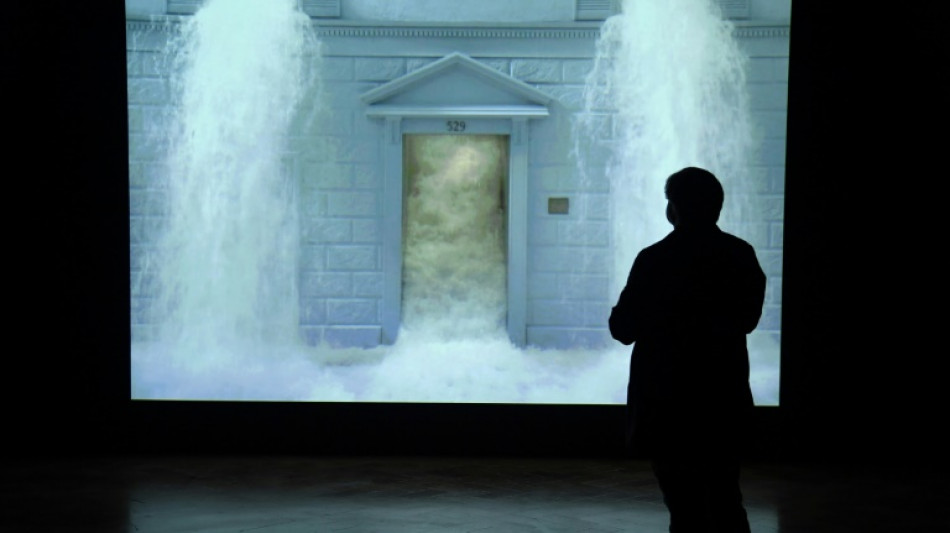

Pioneering video artist Bill Viola dies aged 73
Bill Viola, a pioneer in new media, video and installation art including immersive exhibits that drew thousands around the world, has died at age 73, his official website announced Saturday.
He died at his home in Long Beach, California, after a long struggle with early-onset Alzheimer's disease, the Los Angeles Times reported.
Viola was known for creating powerful video installations often dealing with the extremes of human emotion and experience -- of birth, death and consciousness.
His "decades-long engagement with video proved vital in establishing the medium as an integral part of contemporary art," ArtNews said on social media platform X.
Viola was "an alchemist of the moving image who exploded small moments into tableaux of staggering depth," art critic Brian Kelly said, also on X.
A New York native, Viola came of age as video systems were evolving, and in experimenting with the new technologies, "I gradually realized that the act of perception was in fact a viable form of knowledge in and of itself, and not merely a kind of phenomenon.
"This meant that when I held the video camera and microphone, I was holding a philosophical system, not just some image- and sound-gathering tool," his website quotes him as saying.
During a 2017 showing of his work in Florence, Arturo Galansino, director of the Palazzo Strozzi, called Viola "one of the fathers of video art," adding, "Like the Renaissance painters, his work is very spiritual."
Viola studied fine arts at Syracuse University, where he had encounters with video artists like Peter Campus and Nam June Paik.
While working with an avant-garde art group in Florence in the 1970s, he was struck by the presence of art in everyday life in Italy -- a contrast with his youth in Queens, New York, where most of the art he saw was on the walls of museums.
In 1975, on a visit to Australia, he met arts director Kira Perov. They married and traveled together to Canada, Tunisia, Tibet and Japan, recording a huge trove of images while also studying video editing techniques -- and Zen Buddhism.
Over five decades, Viola's work reached a global audience.
A commission for the Deutsche Guggenheim Berlin museum and New York's Guggenheim resulted in a five-part "fresco" representing themes of individuality, death and rebirth.
Viola was a Getty scholar-in-residence and recipient of a MacArthur Foundation fellowship.
Perov, his career-long creative collaborator, once said that the death of Viola's parents had a huge impact on him and his art.
"He came face to face with death," she said, "and it really hit him."
Ch.Buidheach--NG


